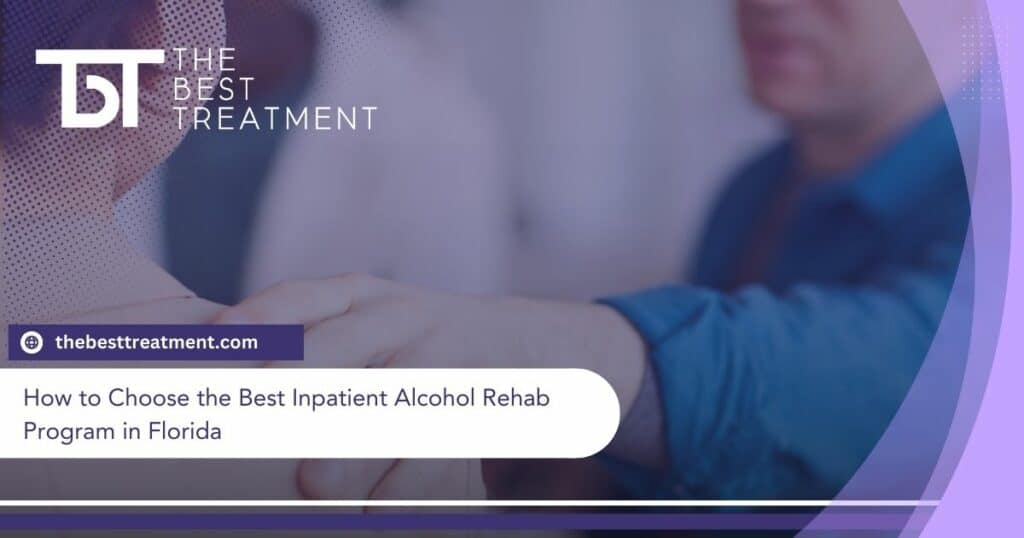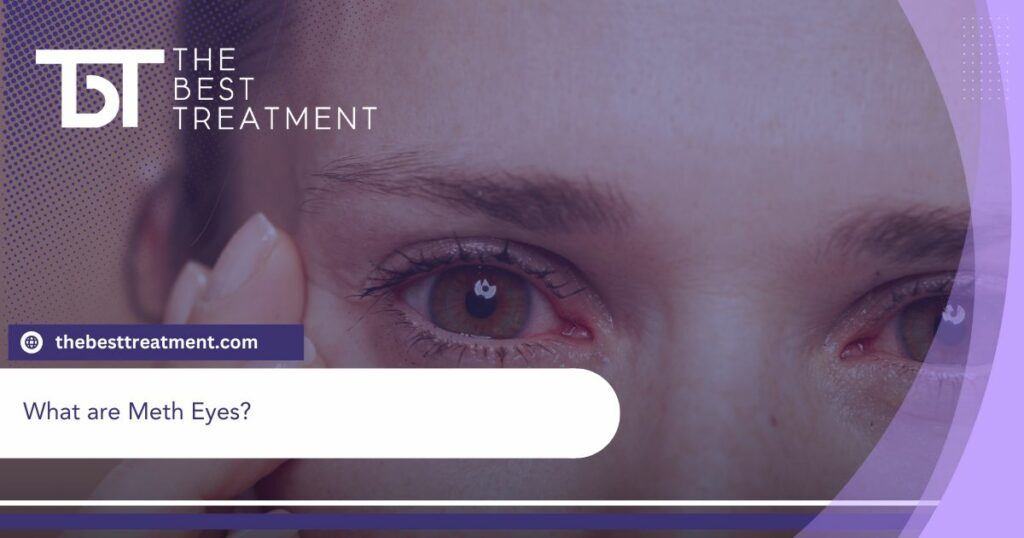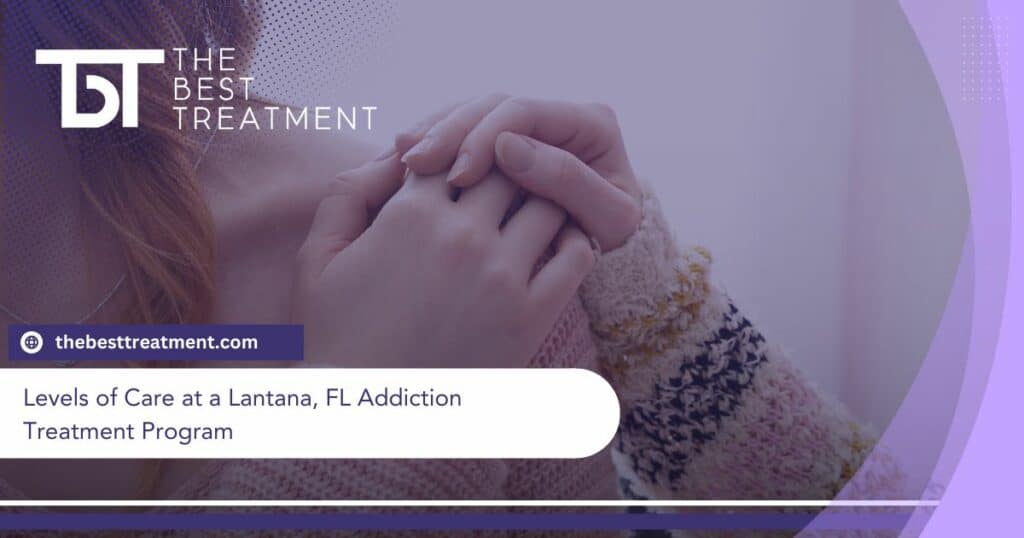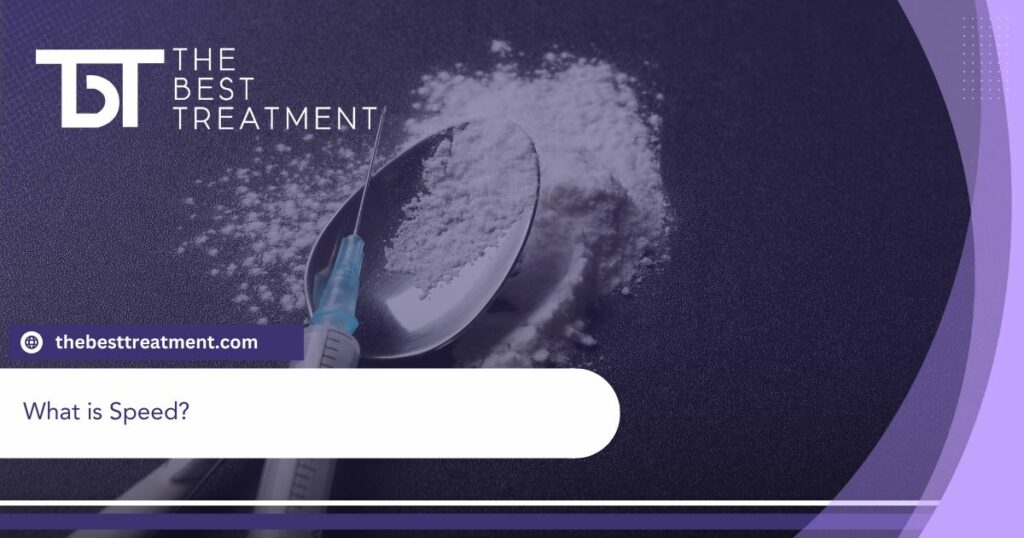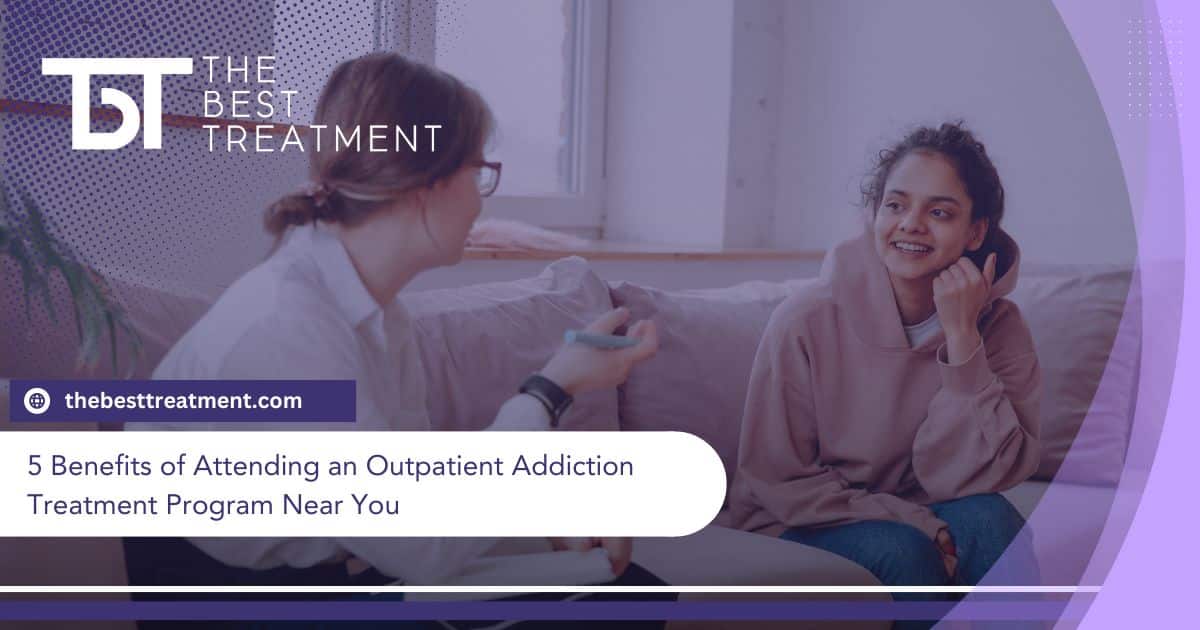Table of Contents
Developing an addiction to drugs or alcohol can lead to severe, sometimes life-threatening consequences. Your health, emotional well-being, and relationships can suffer. You may lose opportunities, face legal and financial trouble, or develop life-altering chronic conditions.
Holistic, intensive treatment can help you recover and move forward. There are two basic levels of addiction treatment: residential treatment and outpatient treatment.
This article explores five benefits of outpatient addiction treatment programs. You will learn how to recognize addiction and find the treatment you need.
Reach out to The Best Treatment team now to explore your treatment options. Our admissions team will help you schedule an intake into our treatment center. They can verify your insurance or answer any questions.
Do You Need Outpatient Addiction Treatment?
If you struggle with substance abuse, you must get help and support to overcome it. But how do you know if outpatient treatment is right for you?
Before beginning treatment, a medical professional will assess your needs and recommend a level of care. The assessment may consist of a physical exam, questions about your substance use, a mental health and medical history, and other relevant information.
Generally, outpatient care is best for people who:
- Have a safe, stable place to live
- Have a reliable way to get to and from treatment sessions
- Do not have intense or persistent cravings
- Have finished detox
Many people participate in outpatient rehab after completing an inpatient treatment program. However, the level of care you require depends on your own needs and preferences.
What Happens in Outpatient Rehab Programs?
Outpatient treatment programs may occur in rehab centers, hospitals, or other settings. There are several levels of outpatient care, including:
- Partial hospitalization programs (PHP)
- Intensive outpatient programs (IOP)
- Outpatient detox
- Outpatient rehab
The goal of all outpatient programs is the same: to help people get sober and avoid relapse.
During an outpatient program, you will work with mental health and medical specialists. Your treatment team will develop a plan to meet your needs. Your treatment plan may include:
- Individual counseling
- Behavioral therapies
- Support groups
- Counseling and support for family members
- Relapse prevention education
- Coping skills
- Mental health treatment
- Medications
- Medical care
- Exercise, nutrition support, mindfulness, art therapy, and other holistic therapies
- Aftercare planning
During counseling sessions, you will work to understand the roots of your substance abuse. You will learn skills to avoid relapse. You will also develop an aftercare plan to help you prevent relapse after completing your treatment programs.
Treatment sessions typically occur at rehab facilities throughout the week. You may have one session per week or attend treatment sessions each day. Your treatment schedule will depend on your needs and the level of care you require.
5 Benefits of Attending an Outpatient Treatment Program
1. Cost-effective
You will receive high-quality treatment in an outpatient rehab program while living at home. Unlike inpatient treatment programs, you won’t pay for meals and overnight care. This can make outpatient programs much more affordable than inpatient programs.
2. Privacy
Attending a flexible outpatient treatment program may allow you to continue going to work, attending school, and managing daily responsibilities. This can help you maintain privacy as you receive treatment.
3. Adaptable treatment
Outpatient programs are much more flexible than inpatient care. Instead of living in the treatment facility, you will attend sessions several times a week or daily. Many people enjoy the flexible schedule an outpatient rehab program offers.
4. Support
A substance abuse treatment program can offer valuable support and a sense of community. However, you may also prefer staying close to family and friends while attending treatment. You may also stay connected to community supports, such as Alcoholics Anonymous meetings, therapists, and other specialists.
5. Personalized care
Substance use disorder treatment is not a one-size-fits-all process. Outpatient addiction treatment programs offer several levels of care to meet a wide range of needs. These include:
- Outpatient detox programs
- Intensive outpatient programs (IOP)
- Partial hospitalization programs (PHP)
- Outpatient rehab
Before attending a treatment program, you will undergo an assessment to determine which treatment option is right for you. Your treatment team will adjust your individualized treatment plan as you progress in recovery.
Understanding the Benefits of Attending Outpatient Addiction Treatment Near You
Attending outpatient addiction treatment near you can help you recover from addiction. Choosing a local addiction center keeps you close to your support network and other familiar comforts.
Staying close to home during treatment also makes creating an effective treatment plan easier. Your treatment team can connect you with nearby community resources and ongoing treatment.
Staying local for treatment also means you can start a rehab program sooner. You will not have to arrange travel or lodging before beginning rehab.
Finally, choosing to attend a local treatment center may save you money. You will not have to pay out-of-pocket for travel expenses, meals, lodging, and other necessities.
Contact The Best Treatment team now to learn about our treatment programs or schedule an intake assessment.
Medically Reviewed: September 25, 2019

All of the information on this page has been reviewed and verified by a certified addiction professional.






